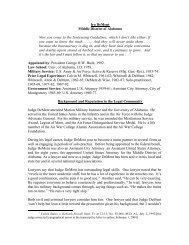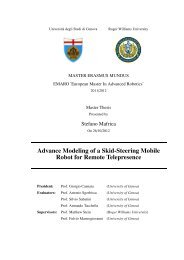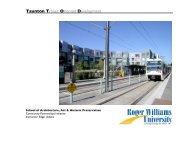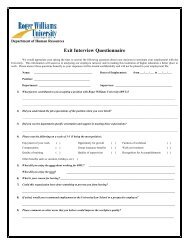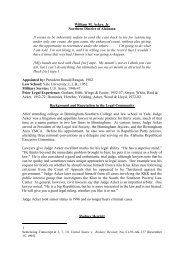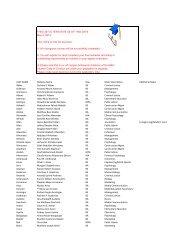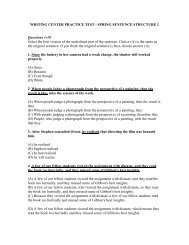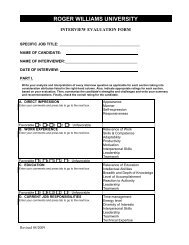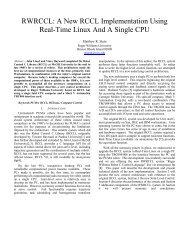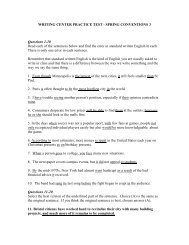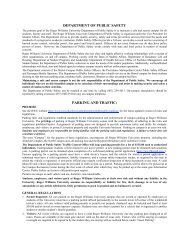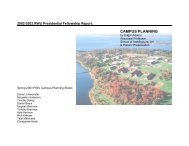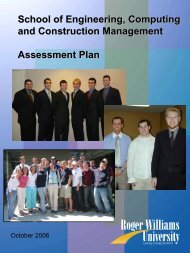Introduction to Academic Writing Common Course Syllabus
Introduction to Academic Writing Common Course Syllabus
Introduction to Academic Writing Common Course Syllabus
- No tags were found...
You also want an ePaper? Increase the reach of your titles
YUMPU automatically turns print PDFs into web optimized ePapers that Google loves.
The policy regarding make-ups on in-class work and the impact of absenteeism on the student’sgrade will be determined by the section instruc<strong>to</strong>r.Attendance at co-curricular activities may also be required.ParticipationA student’s participation grade is determined by a number of fac<strong>to</strong>rs, including the student’slevel of preparedness for class, engagement in class discussion, performance on in-classindividual and group exercises, as well as the quality of the peer review the student conducts.All of these activities are contingent upon attendance. Students who do not show up for class orshow up late, who are not prepared, or who do not attend <strong>to</strong> the day’s tasks will earn lowerthan a “C.”<strong>Academic</strong> IntegrityAccording <strong>to</strong> the Roger Williams University Catalog,Plagiarism is best defined as the incorporation of words and ideas of anotherperson in an attempt <strong>to</strong> claim that person’s work as one’s own. Thus, plagiarismfails <strong>to</strong> engage in civil, scholarly discourse. It is sometimes a form of intellectualtheft and is always a form of intellectual fraud.In its worst form, plagiarism may consist of directly copying large orsmall portions of either printed or online works, or, as frequently happens inschools, written papers of another student, without properly crediting thesource(s) from which they came. There are, however, more subtle forms ofplagiarism as well. Paraphrasing, which is the process of using alternativeexpressions <strong>to</strong> communicate the meaning of another author’s words, is also aform of plagiarism, unless the sources of those ideas are acknowledged.An in-depth explanation of academic integrity and plagiarism, including the procedures foraddressing possible violations and the penalties for actual violations, can be found on pages 65<strong>to</strong> 67 of the current catalog.In addition, students agree that by taking this course all required papers may be subject <strong>to</strong>submission for textual similarity review <strong>to</strong> Turnitin.com for the detection of plagiarism. Allsubmitted papers will be included as source documents in the Turnitin.com reference databasesolely for the purpose of detecting plagiarism of such papers. Use of the Turnitin.com service issubject <strong>to</strong> the Terms and Conditions of Use posted on the Turnitin.com site.Student Accessibility ServicesStudents who wish <strong>to</strong> receive academic accommodations for this course must first register withStudent Accessibility Services (SAS) in order <strong>to</strong> begin the accommodation process. The SASoffice will provide registered students with the specific information they will need <strong>to</strong> share witheach instruc<strong>to</strong>r. SAS is located on the second floor of the Main University Library and is openfrom 8:00 am <strong>to</strong> 5:00 pm Monday through Friday.Additional information is at http://rwu.edu/academics/academic-services/sas/current-students



